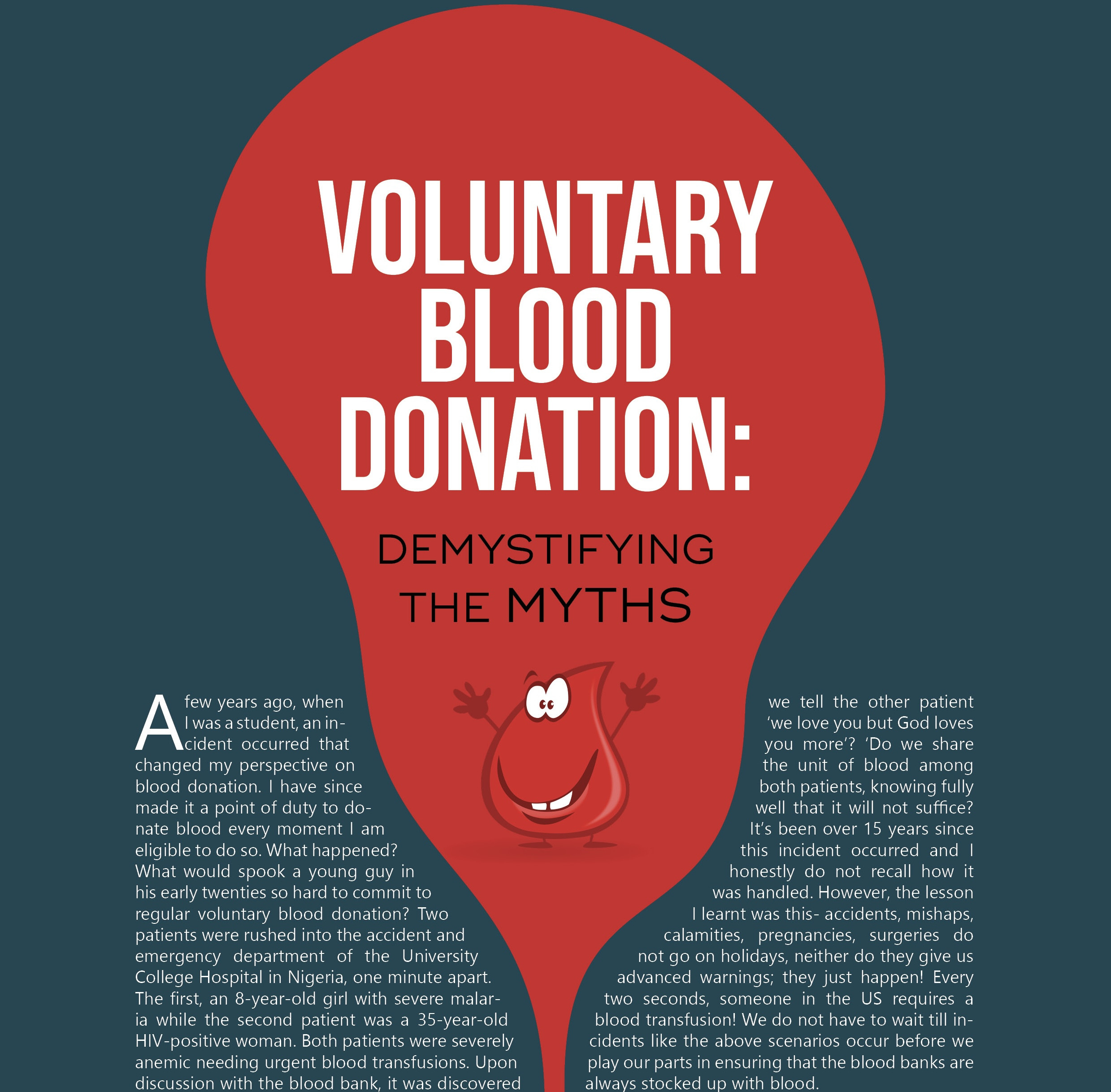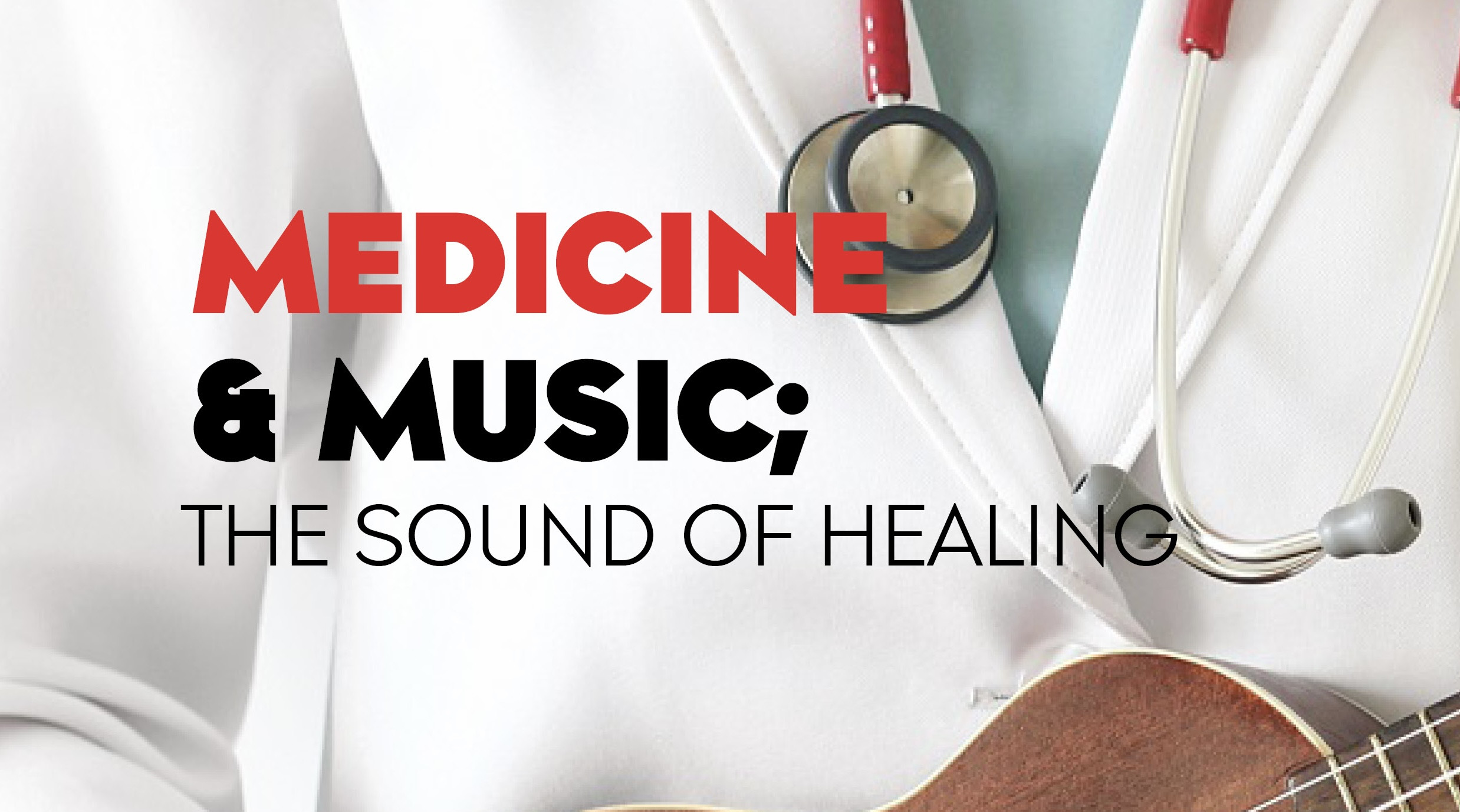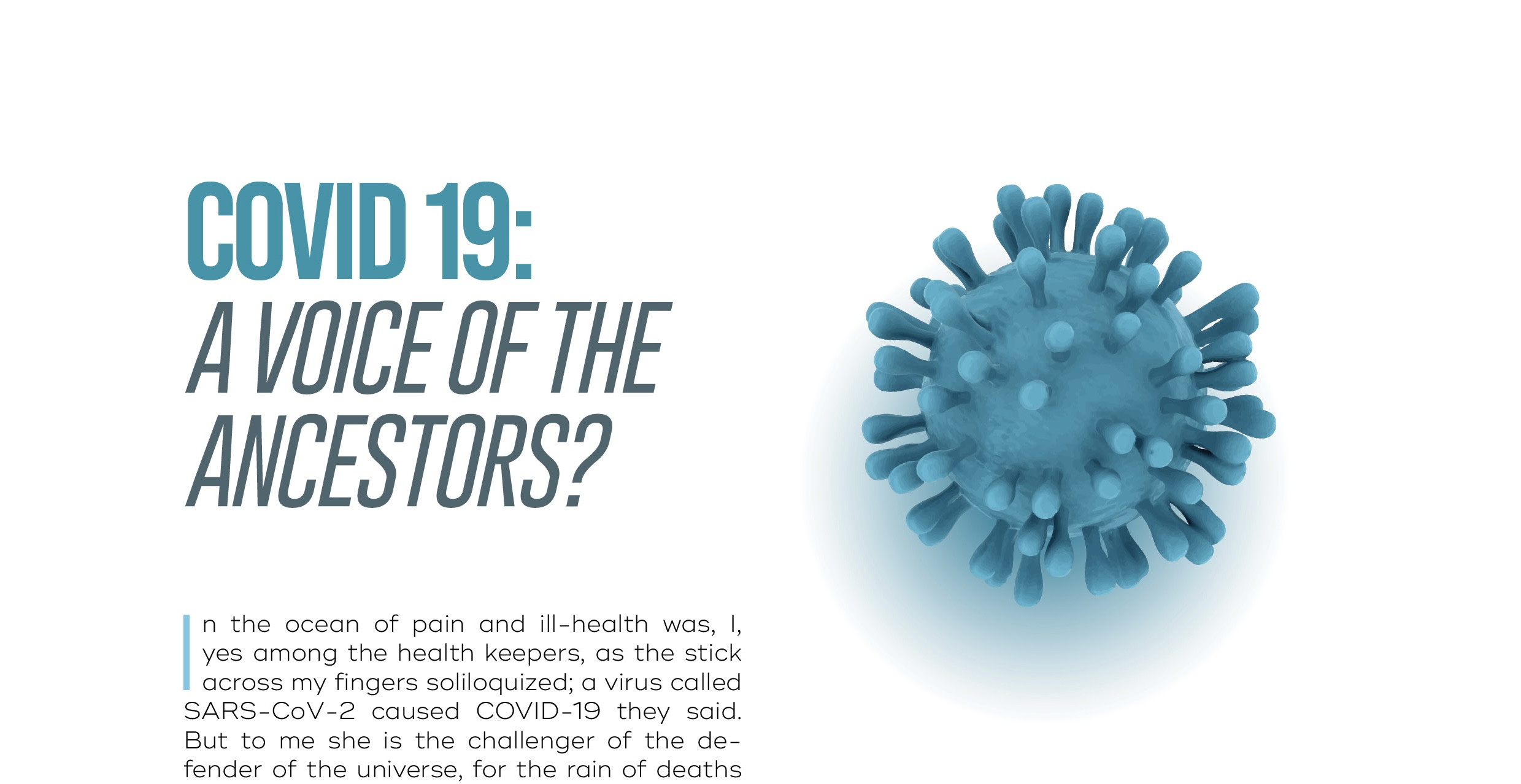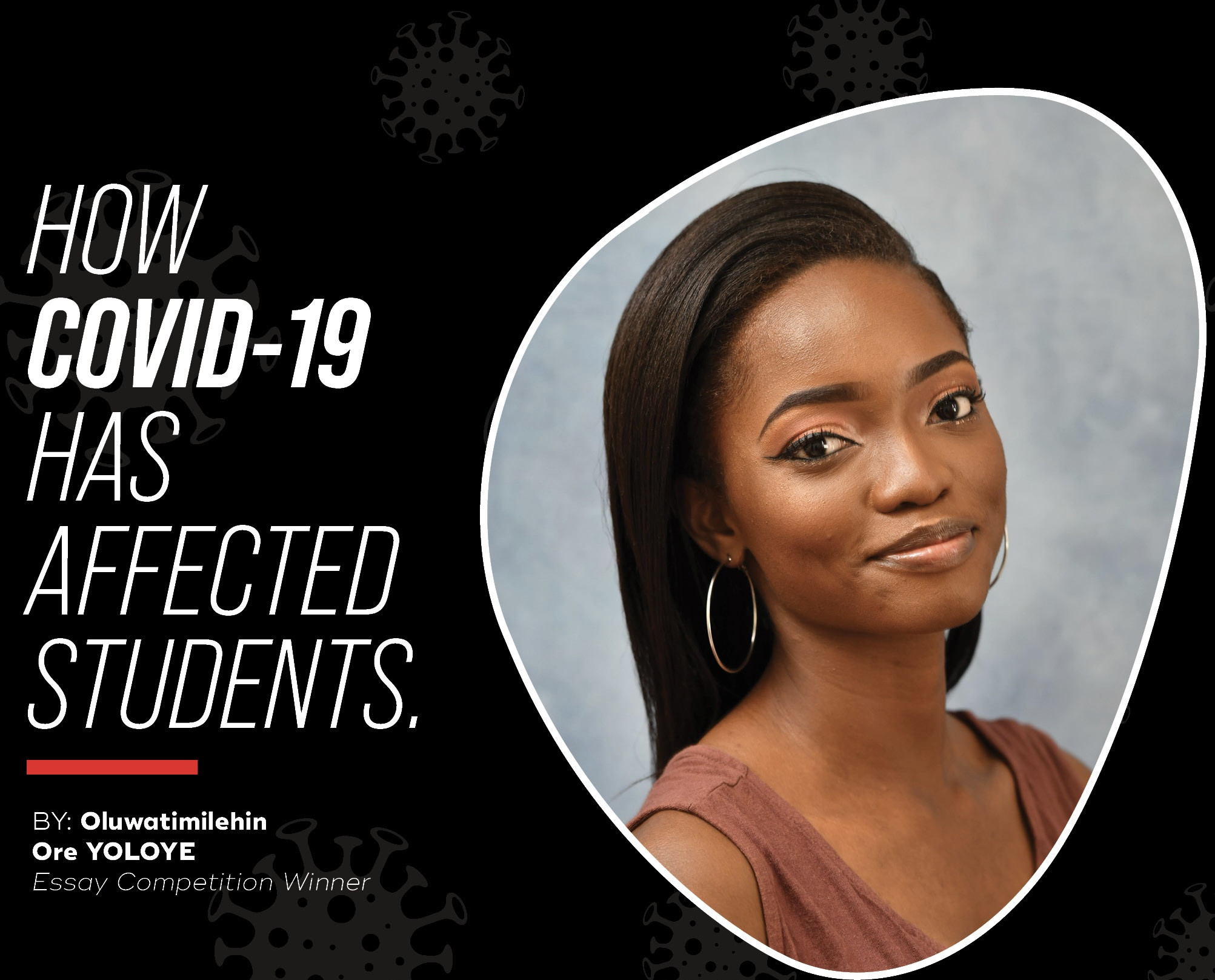You know how when something happens to someone else somewhere else, what comes to mind is, “It can’t happen to me” but COVID-19 came and told us in clear terms, “It can happen to you.” Who would have thought that the headachefelt in China would stroll over to give us a migraine in Dominica? I can’t re- member clearly how I learnt about thevirus and its spread across nations. What I do remember is that one moment we were attending classes, thinking about how nice it would be if we didn’t have classes in the mornings, and the next mo- ment, we were beingasked to stay back at home as COVID-19 had decided to profess its love to Dominica. There was a mixture offeelings in the air... Excitement.... Joy.... Fear... More fear.
Excitement. I mean, who doesn’t like a holiday from school work?
Joy. Did I mention ‘no school’? Time to breathe, or not. COVID was in the air and there was a pile of school work that hadaccumulated as well.
Fear. We had all heard about the massive num- ber of deaths occurring across nations. For a country with a population of about 70,000, what was to be our lot?
More fear. Now that COVID was in the air, where were we supposed to get fresh oxygen from? I mean, nobodywants to die. Our “joy” was short- lived as the break only lasted for about 2 days
Classes were to begin online. Most of us were introduced to Zoom for the first time ever (like, excuse me, what are we zooming?) and we began our journey into adapting into the pandemic way of life. COVID-19 has affected, is affecting, and will continue to affect us students in more ways than one. Based on my observa- tion of students of All Saints University Schoolof Medicine, Dominica. I have enumerated the ways that the coronavirus pandemic has affect- ed us.
1. ONLINE CLASSES:
You never know what you can do until you are placed in a situation with no way out. Who would have thought that medical students would have classes online on a regular basis? Think of the expenses our sponsors would have avoided by not having to deal with flight fares to Domini- ca, rent, electricity bills, transport and feeding allowance. We would have probably just had toattach ourselves to a medical school within our locality for practical aspects. Oh well, life hap- pens. So we waltzed into theunknown world of online classes.
Like a former teacher of mine usually said, ‘Ev- ery advantage has a disadvantage.’ And I agree. Migrating to online classes surely had its pros and cons.
PROS:
a. No need to wake up early to catch the bus. For someone like me who was usually among the first to be picked up, early meant I had to be ready before 6:30am or risk missing the bus. This new dispensation meant Icould wake up at 7:30am and get ready for an 8am class without leaving the comfort of my home (or room).
b. Transport fare saved: This was pure bliss. Extra money in the pockets. Yay!
c. Permission to eat and sleep during class: Ex- cept in classes when everyone’s cameras had to be turnedon, if you were sleepy, you slept. Sim- ple as ABC. Food? Free access to the refrigera- tor to eat like a glutton at the risk of your waist size.
d. More time to read: If one removed the time required to get ready for school, waiting for and getting a bus to and fro school, it meant there was more time to attend to school work. In the- ory. Practically, how well did it work for you? I leave you and your conscience to answer that.
CONS:
a. Copying notes: For slow writers, online class- es meant you couldn’t look into your neighbor’s notes to seewhat you missed.
b. SLEEP: With no one to cast glances at you, or catch you in the act, it was easier to doze off and miss the entire class altogether. God help you if you live alone – nobody to wake you either.
c. Laziness: You know the energy and motiva- tion to read that you get when you see other students around you reading? Motivation had jumped over the fence. Now one had to motivate one’s self to read (that is after sleeping off in at least 2 classes, and your pile of school work was now competing with Mt. Kilimanjaro).
d. Tendency to rush through slides: With no stu- dents to distract them, and no boards to moti- vate them todraw, professors had the tendency to speed through the PowerPoint slides which gave us writers a headache. Howwere we sup- posed to transcribe everything that was being said at this rate? It wasn’t their fault – everyone wasstill trying to adapt to this Zoom life.
2. EXTRACURRICULAR LIFE IN EXTINCTION:
For those of us that still managed to have a so- cial life alongside this medical school life, it was snuffed out byCOVID. What a bully! No social life meant no parties, no outings, no travelling to sightsee. God help you if you’dplanned a par- ty just before the lockdown only to have it cancelled. For introverts like myself, it was pure bliss. No noise in your immediate environment, no need to be guilt-tripped into attending events with friends, or unnecessary side talk. Pure bliss. Just pure bliss.
3. STAGNATION:
For quite a number of people, travel plans were disrupted. Plans to travel home for the holidays, go abroad for a convention, write exams, visa applications, or clinical rotations were all can- celled. You cross all your T’s and dot all your I’s only for COVID-19 to say, ‘you’re going nowhere bro/sis.’ The confusion. The panic. The tears.The emergence of COVID-19 came with a full- blown emotional season.
4. FINANCES:
COVID came and schools had to be shut down. Stores were locked and offices were closed. Peo- ple were being laid off their jobs & salaries were not being paid. Yet, mouths needed to be fed and fees needed to be paid. Rent. Electricity. Car maintenance. The list was endless. Asking for money from home became an upheavaltask. Some students even had to drop out of school or defer their admissions. For the considerate students, or students whose parents didn’t have money trees in their backyards, it was a battle of and in the mind. Youneeded funds, but you also didn’t want to stress the source of the funds. Meat was being cut into smaller portions, food was being rationed, hunger strike sometimes even. Tomorrow became uncertain, so ‘today’ wasbeing managed as best as possible.
5. BETTER HYGIENE:
After months of trying to avoid getting infect- ed with the virus, I’m sure a lot of us now wash our hands unconsciously after returning from an outing. Hand sanitizers have become our best friends. As it is said, bettersafe than sorry.
It’s been over a year since the virus reared its ugly head. We’ve seen and heard the good, the bad and theugly. Whatever your experience has been during this season, you reading this arti- cle means you’re alive andthere is hope for you. Your story is not over yet and you have the op- portunity to do whatever it is you wanted to do. And if that opportunity has been lost forever, it’s time to get new ones. You’re stronger than COVID!Don’t give up!







Leave a Comment